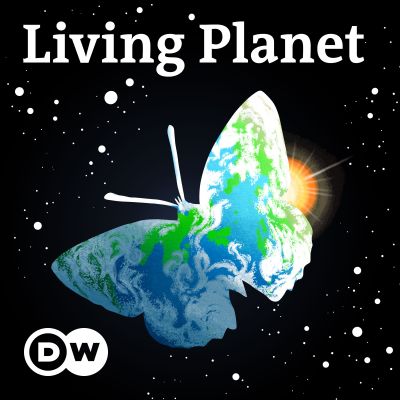Every Thursday, a new episode of Living Planet brings you environment stories from around the world, digging deeper into topics that touch our lives every day. The prize-winning, weekly half-hour radio magazine and podcast is produced by Deutsche Welle, Germany's international broadcaster - visit dw.com/environment for more.
https://www.dw.com/en/living-planet/program-19028671?maca=en-podcast_living-planet-948-xml-mrss
Gesamtlänge aller Episoden: 9 days 18 hours 15 minutes
Deep dive: Mercury’s tantalizing promise of endless gold in South America
Mercury’s a known pollutant in fish, but did you know one of the biggest mercury emitters is actually small-scale gold mining? From sunken ships to shihuahuaco trees, we take a deep dive into the astounding history and science of mercury and the solutions that could break its toxic cycle.
Bushmeat bandits: The hidden threat to global health and wildlife
From customs clashes to biodiversity threats and cultural cravings, the illegal bushmeat trade is affecting health and wildlife conservation across continents. But just how widespread is it and why is it so hard to contain?
What's better: Cotton or polyester clothing?
Are you torn over your clothing's environmental impact? From resource-intensive production methods to consumer behaviors, explore the complexities shaping our fashion choices and their ecological footprints.
An ode to the crow
A familiar bird that is as clever as it is cunning, sadly the crow is often dismissed as merely a ruthless menace or an unwelcome alarm clock. But if you look closer, there's beauty in this scavenger's ways.
What's better: Contact lenses or glasses?
It seems like glasses would be the obvious eco-friendly choice, but not so fast! The answer is both fascinating and a bit mind boggling. Get ready for some eye-opening facts that could make you rethink your eyewear habits.
The iron grip of Brazil's mining industry
Brazil's iron ore industry is a vital economic asset but it has devastating environmental consequences. In this episode we delve into the challenges faced by local communities in Minas Gerais as they resist the impacts of mining activities on their environment and water sources.
What's better: Tea or coffee?
Have you ever wondered about the eco-story behind your daily brew? Join us as we spill the beans on the environmental impact of tea & coffee, from cultivation to consumption.
What's better: Plastic or paper?
Plastic or paper packaging. The more environmentally friendly option seems obvious, right? But concealed within this deceptively simple choice between two materials is a whole lot of different chemicals, marketing tricks and greenwashing. So, which is better for the environment?
What's better: E-readers or paper books?
Do you ever find yourself stumped by a seemingly simple choice between two things because you're not sure which would be better for the environment? Like plastic or paper packaging, cotton or polyester pants? We're going to try to find some of the answers in a new segment exploring these everyday environmental dilemmas. In this episode we tackle our reading options: electronic books vs paperbacks.
The comfort of a tree
How often do you stop to really look at the trees in your neighborhood or in your local park? Though you mightn’t have really noticed them – they certainly notice you. They might even be listening in on your conversations. Journey with us to Berlin to meet a special tree that is as majestic as it is ordinary.
